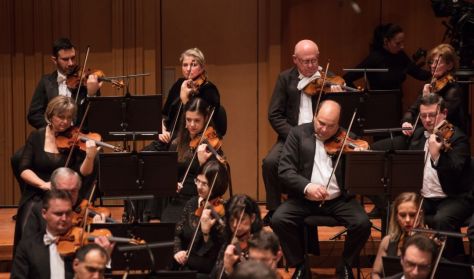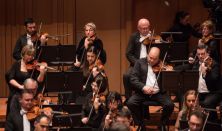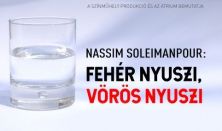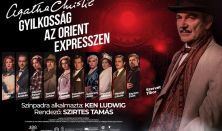Kocsis season ticket / 3
Friday, 12 March 2021, 7:30 pm
Psalm
Johann Sebastian Bach: Brandenburg Concerto No. 3 in G major, BWV 1048
László Dubrovay: Cantata aquilarum (Song of the Eagles)
***
Johann Sebastian Bach: Orchestral Suite No. 2 in B minor, BWV 1067
Zoltán Kodály: Psalmus hungaricus, op. 13
János Bálint flute
Attila Fekete tenor
Hungarian State Opera Children's Chorus (chorus director: Nikolett Hajzer)
Hungarian National Choir (choirmaster: Csaba Somos)
Hungarian National Philharmonic Orchestra
Conductor: Péter Halász
The concerto on the programme is a reflection of two important efforts. The first is the recent "re-appropriation" of Baroque music by traditional symphonic orchestras. In recent decades, as the practice of historically informed performance has gained ground, symphonic ensembles have given up performing Baroque works. This repertoire needs to return to symphonic concerts – enhanced, naturally, by the lessons of historically informed performance. The other important effort is nurturing the Hungarian repertoire of the present and recent past.
Bach's Brandenburg Concerto No. 3 and Orchestral Suite No. 2 are two of the loveliest and most widely popular pieces the composer ever wrote – with the latter also being a beloved gem of the musical literature written for the flute as well. Kodály's Psalmus hungaricus, written to text by Mihály Kecskeméti Vég, dates from 1923, the 50th anniversary of the unification of Pest, Buda and Óbuda, and has since become a national relic of Hungarian music history. One of the greatest treasures of Hungarian culture, this work expresses the spiritual world of the nation in a tragicomic voice. László Dubrovay wrote his one-movement cantata Cantata aquilarum ("Song of the Eagles") to a cycle of poems by Tibor Gyurkovics: the patriotic work addresses questions regarding the fate of the Hungarian people and the importance of solidarity. János Bálint is one of Hungary's most outstanding flutists and regularly performs in his home country and abroad as both a soloist and a chamber musician. The noted tenor Attila Fekete, a member of the Hungarian State Opera, has won significant acclaim singing in both operas and oratorios alike.









